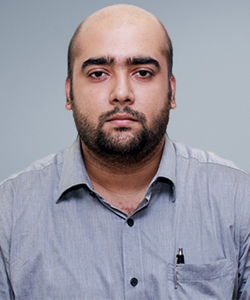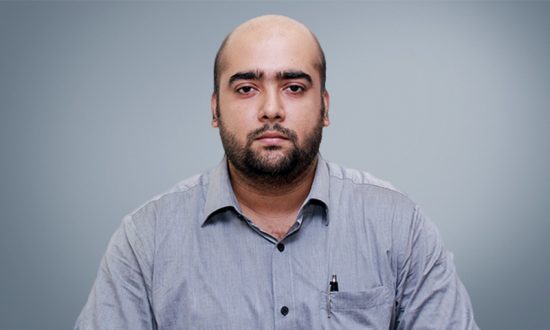CA Aniruddha Phene is an entrepreneur at heart and is a keen observer of various trends and patterns in the marketplace. He is an avid reader and is always updated about the smallest of the things that take place in the commerce world. He is a keen observer of the stock markets, consumer market trends, political environment, government policies, laws, taxation, education industry trends and business news.
The NEP 2020 inter alia talks about professional education and the need to revive and develop Professional Courses in Agriculture, Law, Healthcare and Technical fields.
Professionals play an important role in the development of any economy. The NEP says that the Professional Courses should involve education in the ethic and importance of public purpose, an education in the discipline, and an education for practice. It must also involve critical and interdisciplinary thinking, discussion, debate, research, and innovation. Professional Education should not be limited to the course speciality.
Professional education is an integral part of the overall higher education system. Agricultural universities, legal universities, health science universities, technical universities, and institutions in other fields, shall aim to become multidisciplinary institutions.
Following are the fields in Professional Education covered by the NEP 2020:
1. Agricultural Education & Veterinary Sciences
Agricultural education with allied disciplines will be revived. Although Agricultural Universities comprise approximately 9% of all universities in the country, enrolment in agriculture and allied sciences is less than 1% of all enrolment in higher education. Both capacity and quality of agriculture and allied disciplines must be improved in order to increase agricultural productivity through better-skilled graduates and technicians, innovative research, and market-based extension linked to technologies and practices. The preparation of professionals in agriculture and veterinary sciences through programmes integrated with general education will be increased sharply. The design of agricultural education will shift towards developing professionals with the ability to understand and use local knowledge, traditional knowledge, and emerging technologies while being cognizant of critical issues such as declining land productivity, climate change, food sufficiency for our growing population, etc. Institutions offering agricultural education must benefit the local community directly; one approach could be to set up Agricultural Technology Parks to promote technology incubation and dissemination and promote sustainable methodologies.
2. Legal Education
Legal education needs to be competitive globally, adopting best practices and embracing new technologies for wider access to and timely delivery of justice. At the same time, it must be informed and illuminated with Constitutional values of Justice – Social, Economic, and Political – and directed towards national reconstruction through instrumentation of democracy, the rule of law, and human rights. The curricula for legal studies must reflect socio-cultural contexts along with, in an evidence-based manner, the history of legal thinking, principles of justice, the practice of jurisprudence, and other related content appropriately and adequately. State institutions offering law education must consider offering bilingual education for future lawyers and judges – in English and in the language of the State in which the institution is situated.
3. Healthcare Education
Healthcare education needs to be re-envisioned so that the duration, structure, and design of the educational programmes need to match the role requirements that graduates will play. Students will be assessed at regular intervals on well-defined parameters primarily required for working in primary care and in secondary hospitals. Given that people exercise pluralistic choices in healthcare, our healthcare education system must be integrative meaning thereby that all students of allopathic medical education must have a basic understanding of Ayurveda, Yoga and Naturopathy, Unani, Siddha, and Homeopathy (AYUSH), and vice versa. There shall also be a much greater emphasis on preventive healthcare and community medicine in all forms of healthcare education.
4. Technical Education
Technical education includes degree and diploma programmes in, engineering, technology, management, architecture, town planning, pharmacy, hotel management, catering technology, etc., which are critical to India’s overall development. There will not only be greater demand for well-qualified manpower in these sectors, but it will also require closer collaborations between industry and higher education institutions to drive innovation and research in these fields. Furthermore, the influence of technology on human endeavours is expected to erode the silos between technical education and other disciplines too. Technical education will, thus, also aim to be offered within multidisciplinary education institutions and programmes and have a renewed focus on opportunities to engage deeply with other disciplines.
The focus will also be in preparing Professionals in cutting-edge areas that are fast gaining prominences, such as Artificial Intelligence (AI), 3-D machining, big data analysis, and machine learning, in addition to genomic studies, biotechnology, nanotechnology, neuroscience, with important applications to health, environment, and sustainable living that will be woven into undergraduate education for enhancing the employability of the youth.
Overall, the NEP 2020 addresses the need to develop professionals in a variety of fields ranging from Agriculture to Artificial Intelligence. India needs to be ready for the future. And the NEP 2020 paves the way ahead for many young aspiring students to be equipped with the right skillset. Its proper implementation will be the key to its success.
More About CA Aniruddha Phene

Before starting his academy, CA Aniruddha Phene had started his investment company Phene Investments which dealt in Mutual Funds and Insurance. He worked in a small software company just after his graduation where he was a marketing executive. He has also worked in several CA firms in the past. He is part of the core committee of the youth wing of an NGO named Lokmanya Seva Sangh Parle where he is involved in community service.




